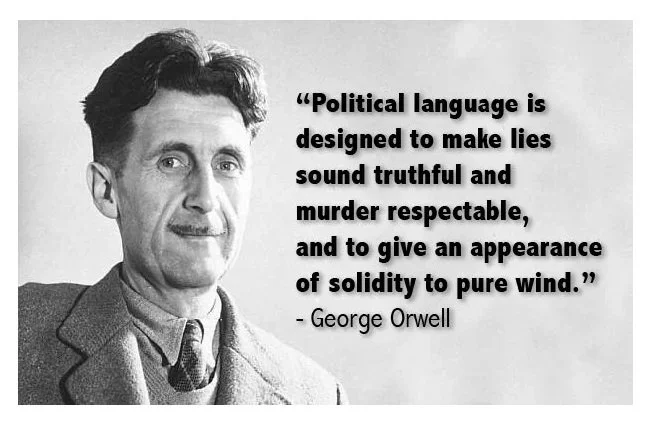Separating Art from the Artist
In recent years, the #MeToo movement has made it abundantly clear that the film, TV and video games industries are far from idyllic work environments that pop culture implies that they are. Allegations of rape, sexual assault, bullying and general bullshit abound. There have been convictions and such matters are slowly being given the scrutiny they deserve. But it’s an uphill struggle for the victims because vested interests will always resist potential changes to the status quo. There are wider discussions to be had about many artistic and creative industries being glorified “boys clubs” and then there is the culture of “blaming the victim” but those are for another day. I don’t think they’re going to resolve themselves over night, sadly. On this occasion, I would like to reference the composer Jeremy Soule, because he is the latest artist to have serious allegations made against him. Naturally, this has caused a great deal of discussion among his fans. Soule’s work on The Elder Scrolls and Guild Wars franchises is very well regarded. Hence a common refrain that stems from these sorts of situations is “I now feel conflicted about this individual work”. It raises the old chestnut about separating art from the artist.
We can all write a long list of disgraced artists if we think about it. People who at one time produced outstanding music, made great films, staged plays or were great philanthropists and benevolent charitable benefactors. Consider Michael Jackson, Woody Allen, Kevin Spacey and Louie C.K. The list sadly keeps growing. It’s a very rude awakening when you discover that people you admire and revere are in fact monsters. Furthermore, this is not a modern problem. Charles Dickens, William S. Burroughs and Charlie Chaplin all had very chequered pasts. So what are we supposed to do when we discover that something that we enjoy is created by a such a person? Well a common answer is that you must take the art and effectively remove it from the context of the artist that created it. But like many notional concepts, trying to put in to practice is harder to do. It is something that requires a willing sense of cognitive dissonance, as well as being able to govern your passion. That is not going to be easy for many people. And then there’s the issue of fandom, which muddies the waters even further. Fans are not always the most self-aware or emotional literate societal group.
I first encountered the concept of separating art from the artist when at school, studying English literature. T.S Eliot stated, “I have assumed as axiomatic that a creation, a work of art, is autonomous,” in 1923. There subsequently followed a new way of appraising literary work, which attempted to make analysis more like a science. The focus was on the words, their meaning and context and the authors relationship with their work was sidelined. This method and variations of it have prevailed for a long time and where still used when I was being educated in the eighties. French literary theorist and philosopher Roland Barthes declared in 1967 that authors doesn’t create a text. The reader does, by reading it. Each new reading effectively reinvents it. Therefore texts have no fixed or definitive interpretation. Oh and it gets even deeper. I have read arguments that film and music are not owned commodities but cultural gifts bestowed upon society. The viewer or listeners opinion has to trump that of the artists, because they have been solicited to give a personal subjective opinion. This theoretically will negate the auteurs ability to control the interpretation of their work and will therefore tempers their institutional power.
But these ideas tend to mainly exist within the confines of the classroom and academia. They are both abstract and cerebral which therefore limits their practical application. Plus there is another issue that stems from our revulsion against fallen artists. There is an inherent cultural assumption that we expect our artists to be virtuous by default. That is not to say that we should be advocating for them to be the opposite but it reveals a societal propensity to put artist on a pedestal by dint of being an artist. Musicians, actors, writer and film makers begin their careers as everyday people, like you and me. Therefore they will have the flaws and failings that we all share. In fact some would argue that their creative abilities draw upon their flaws, vices and failings. Yet the moment success, fame and personal validation are achieved we seem to give artists a cultural free pass. We cosset them and make excuses. Are we actually contributing to the creation of monsters?
Upon reflection it would appear for many people there is no easy way of separating art from the artist. Because our relationship with art is deeply personal, it seems perfectly reasonable to take it personally when someone you admire transgresses. So if you no longer wish to support an artist, then don’t buy any more of their work. If you cannot bring yourself to listen to their music then purge your CD collections. We are not purely rational beings. Art is emotive, so are artists and so are we. But I believe that we have to confine out emotional responses to the likes of Jeremy Soule and Michael Jackson, to just ourselves. I do not advocate that as a society we try to erase the art of those who are in disgrace, due to some perceived collective moral outrage. Hiding from awful events and the things that they touch does not address them. Also it is usually the art we encounter first and not the artists. Hence, we do not know in advance their human failings. And irrespective of what we may know after the fact, if a piece of art touches you can that truly be retrospectively refuted?
So where do I stand on all this? Well I do strive to separate art form the artist. However, that does not mean that I’m an apologist for their crimes. If you want me to write 2,000 words on the films of Roman Polanski, I will do so and focus purely on that. If you also ask me to write a comparable amount of text on his failings as a person, then I can accommodate that as well. When I’m listening to Billie Jean, watching Manhattan or Jeepers Creepers, I do not by default immediately focus upon the creative artist and their iniquities. Nor do I totally banish them from my thoughts. I find my own personal point of emotional and ethical equilibrium. Because although a singer, actor or director may be tainted, that doesn’t have to transfer to my relationship with their work, which was pure initially. If you allow the artist to spoil the art, it negates the contributions of all of those who were also involved in the creative process, which is inherently unfair. The truth is the myth of an auteur is exactly that. But this is my philosophy and my means of coping. We all have to find our own. Ultimately if this dilemma makes you angry, then that is something else that you can lay at the door of the artist that has gone rogue.




























